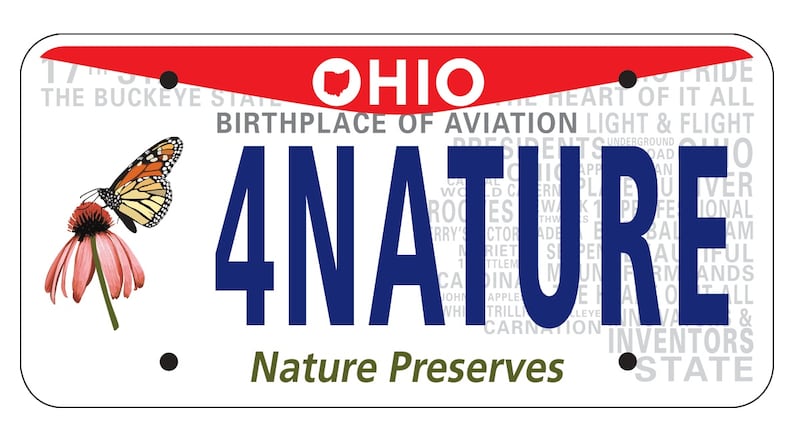Bill co-sponsors include Rep. Jim Butler, R-Oakwood, Rep. Sara Carruthers, R-Hamilton, and Sen. Peggy Lehner, R-Kettering.
The new license plates benefit dozens of health care nonprofits, such as groups promoting awareness and research for breast cancer, prostate cancer and pancreatic cancer, as well as other diseases including sickle cell anemia and multiple sclerosis.
Other plates raise funds for wildlife, such as the Glen Helen Nature Preserve and the Ohio Division of Wildlife’s new “Ohio Bullfrog” plate.
Still others are for the National Aviation Hall of Fame, Wright B. Flyer Inc., Fraternal Order of Police of Ohio, the Pro Football Hall of Fame and Ohio Rock and Roll Hall of Fame.
School districts also are included in the newly created plates, including Fairfield, Hamilton and Ross high schools in Butler County.
Specialized interest plates are license plates with specified character combinations, logos supporting a special interest group or both. All specialty plates, except military, require an additional fee to cover the cost of production and handling. Some may include a fee up to $50 earmarked for a particular organization. The fees are charged each year, including when only a validation sticker is needed, according to the Ohio Bureau of Motor Vehicles website.
The bill also allows registration costs for hybrid and electric vehicles to be prorated.
According to a release from Rep. Dave Greenspan (R-Westlake), the prior version of the law caused hybrid and electric owners to possibly pay full registration fees twice during the same year. For example, an individual might pay the full fee when they buy an electric vehicle today, and then have to pay again on their birthday months later.


